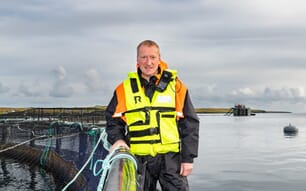“As a net importer of over 75 per cent of the seafood we consume, the plans agreed in the coming months between member states and the Commission, following the reform of the Common Fisheries Policy, will reveal the real level of commitment by politicians and officials to address in the EU seafood defecit and support coastal and peripheral communities," said Mr Flynn.
Under the new financial plan for seafood, each member state is obliged to produce national strategic plans for the development of their trout, salmon shellfish and freshwater farming sectors. The €6 billion European aquaculture sector is perfectly place in terms of meeting the burgeoning demand for healthy seafood products, being well regulated, having the collective experience and quality production skills to supply a significantly increased part of EU consumption.
“Each national government must now set out the actions they intend to take to speed up and simplify licencing of fish farms, reduce red tape, enhance EU producers’ competitiveness and level the playing pitch with imports.
"Should they fail to be realistic and committed to those plans then they are obliged right now to explain why they surrendered this opportunity to communities, families and customers and to immediately invite third country imports from Asia, Russia and Norway to take control the whole EU market.”
“Stagnation in EU production of farmed fish over the last decade has been the result of years of inertia, difficulties with competing and confusing EU legislation and a lack of respect for the needs and ability of small companies to absorb the costs and impacts of multi layered bureaucracy and red tape.”
Aquaculture in Motion heard case studies from France, Hungary, Spain and Germany on the development of their multi-annual plans and a review of the European Maritime and Fisheries Fund agreed last week by the European parliament Fisheries Committee.
In summing up the views of producers around Europe on behalf of the Federation of European Aquaculture Producers (FEAP), Mr Flynn said that plans without action were of no use to the sector, its workers, investors or customers and that the winners from the new EU policy would be those countries with auditable performance indicators to reduce production costs and increase economies of scale.



